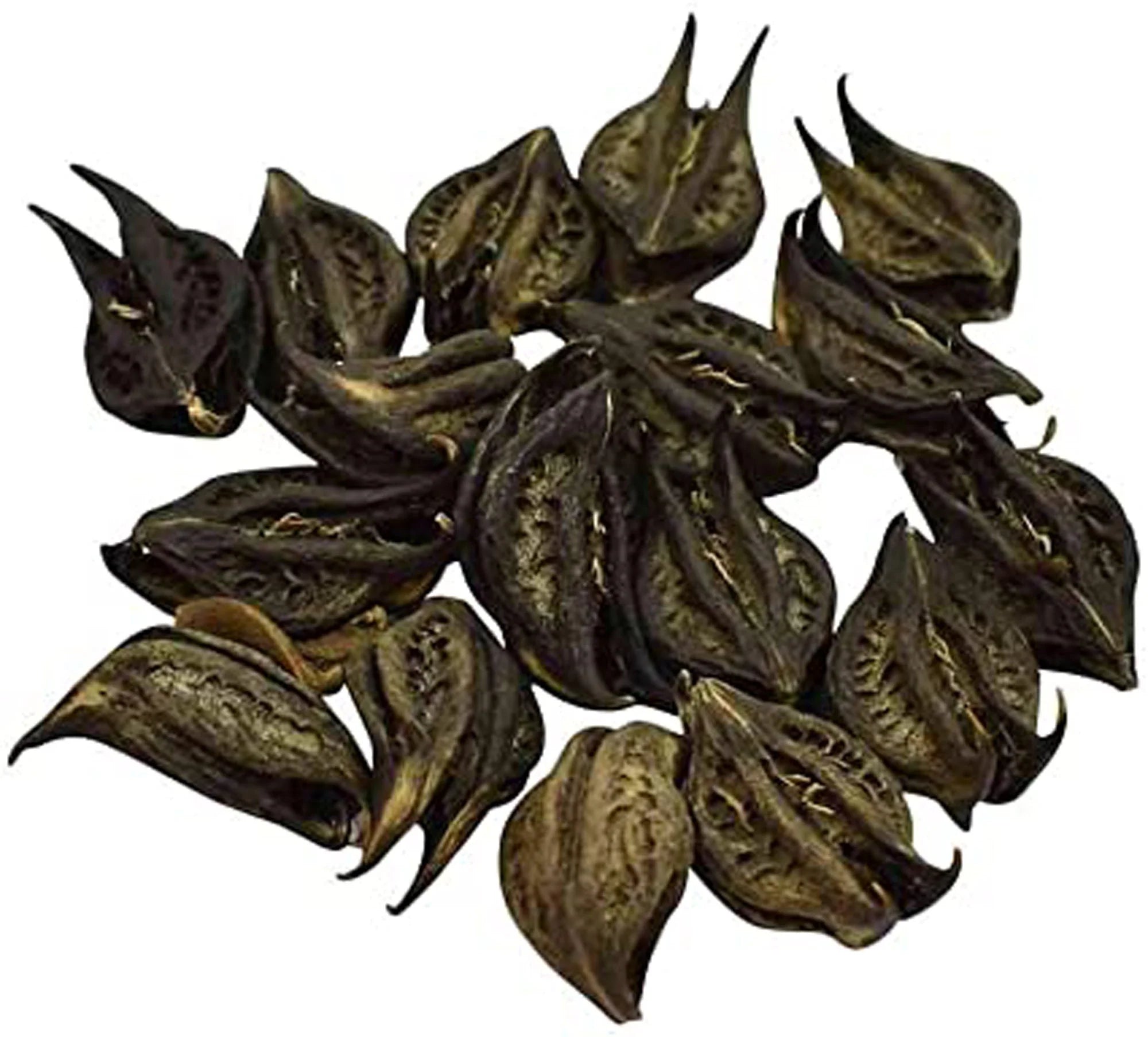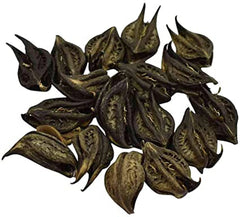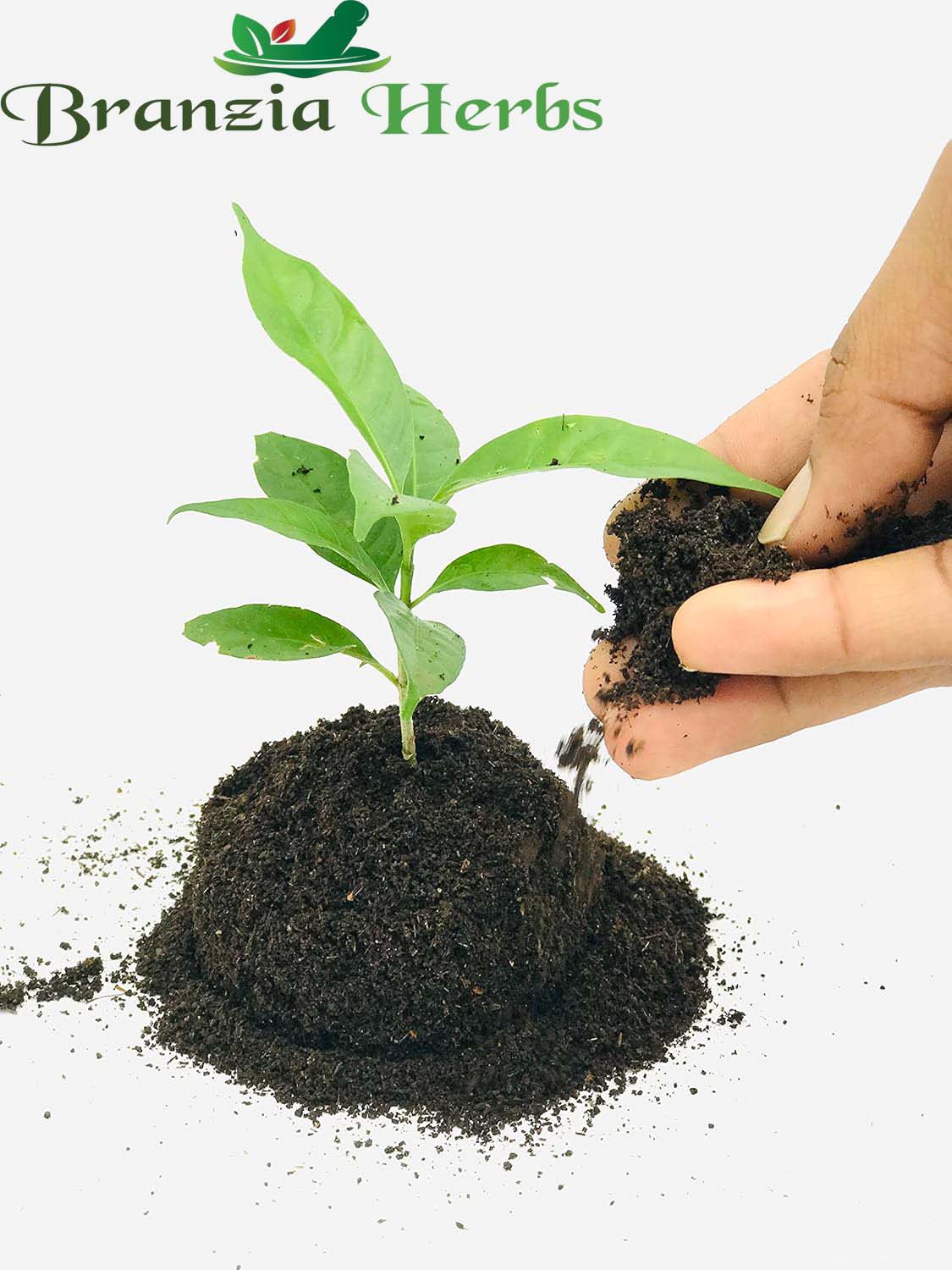Plant Description:
-
- Scientific Name: Aconitum ferox.
- Appearance: Aconitum ferox is a perennial herb with dark green, palmate leaves and tall spikes of blue to purple flowers. The plant produces a distinctive tuberous root that is used medicinally.
-
Traditional Uses:
- Pain Relief: Despite its toxicity, Bichhu Phal has been traditionally used in small, controlled doses to relieve pain and inflammation.
- Anti-inflammatory: It is used in traditional medicine for its potential anti-inflammatory effects.
- Fever Reduction: In some traditional practices, Bichhu Phal is used to manage high fever.
-
Preparation and Use:
- Powdered Form: The dried root can be ground into a powder and used in traditional formulations. Extreme caution is necessary due to its high toxicity.
- Infusions and Decoctions: The root may be used in very dilute infusions or decoctions, but only under the supervision of a qualified practitioner.
-
Properties:
- Toxicity: Bichhu Phal is highly toxic and contains alkaloids such as aconitine, which can cause severe poisoning if not used correctly. Symptoms of poisoning include nausea, vomiting, diarrhea, convulsions, and even death.
- Medicinal Compounds: The root contains potent alkaloids with effects on the nervous system and cardiovascular system.
-
Safety Considerations:
- Toxicity Warning: Due to its high toxicity, Bichhu Phal should be used with extreme caution. Overdosing or improper use can lead to serious health complications.
- Professional Supervision: It is crucial to use Bichhu Phal only under the guidance of a qualified healthcare professional or traditional practitioner. Self-medication or improper dosing can be dangerous.
-
Ayurvedic and Unani Significance:
- Limited Use: In Ayurveda and Unani medicine, Bichhu Phal is used in very specific and controlled contexts due to its toxic nature. It is included in formulations where its effects are carefully monitored.
Note:
While Bichhu Phal has historical use in traditional medicine, its potential for serious toxicity makes it a high-risk herb. Modern safety practices and scientific research on its use are essential to ensure that it is used safely and effectively. Always consult with a healthcare provider before using any herbal remedies, especially those known for their toxicity.




